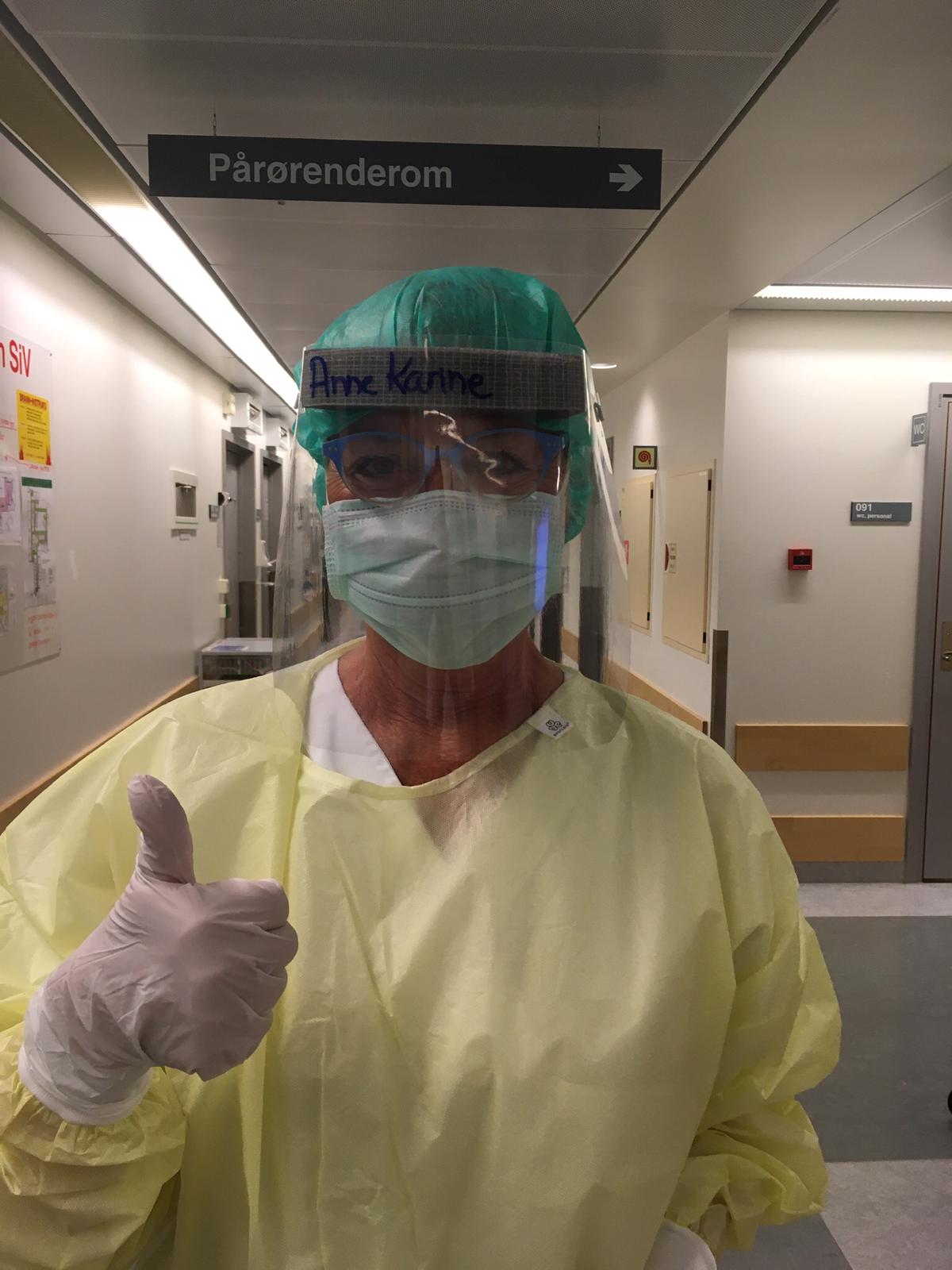Anne Karine Swanstroem, a 64-year old lady from Oslo, Norway, has for long been working as a flight transportation nurse for SOS International.
The closure of national borders and travel restrictions due to the Covid-19 pandemia effectively meant that Anne Karine suddenly had no job anymore.
Bills to pay
“It made me a bit worried. I’ve been working as a nurse freelancer and had no job security; and as with most of us – the bills kept coming in.” – Anne Karine told The Breaker.
Uncertain of what to do, she was eventually encouraged to sign up to a call-scheme by the local council in Oslo. The council was especially interested in nurses with specialised field background. Anne Karine understood quickly that there were job possibilities, but she was also aware that she haven’t had any real experience in the field since she quitted her night-shift job at the intensive care unit on the local hospital more than three decades ago.
“I contacted a staffing agency handling health-personnel and turned in an application. But my training as an intensive caring nurse was a bit rusty, as I haven’t worked as one in 35 years. I was unsure if I could go straight back into the field.” – she says.
Moved away from home
The 64-year old woman was immediately offered a job in a hospital an hour outside of Oslo, where she lives. The distance and the long working hours made things a bit complicated. She was also told that there were no corona cases yet in that unit.
“I moved into a small flat and started my job – I was surprised that there were already seven corona patients on ventilators.”
She adds;
” I thought after 20 minutes that I have to quit this job because I could hardly see through the plastic shield that I had to cover my face with. The protective gear outfit did not breathe at all — So I was heavily sweating. A ten-hour night shift in that gear with half an hour break made me dehydrated and gave me headaches. Toilet visits were limited to the break.”
She admits that her first experience in years with the hasty life on intensive care was challenging. It proved to be a steep learning curve.
”The good thing was that the hospital had prepared for a scenario with 30 beds and ventilators. Luckily, we never came close to fill up those spaces during the first weeks.”
Not afraid
There’s been reports about health workers abroad complaining about not having enough protective gear, in Norway however, things are still working as they should:
– “I’ve never felt afraid or worried about getting the virus myself. With all the safety precautions, you are unlikely to contract the virus in a Norwegian hospital. As far as now, Norway have enough safety equipment to support us.”
The current travel restrictions puts Anne Karine’s old life on a hold, and the future of bringing patients home from abroad doesn’t look immediately forthcoming.
“I loved my old job, but life takes turns now and then. I am proud to be in the frontline in the war against the “invisible enemy”, and as long I could do a good contribution, I am happy where I am.” – Anne Karine finishes.
The Breaker has more stories on the Coronavirus – read further:








